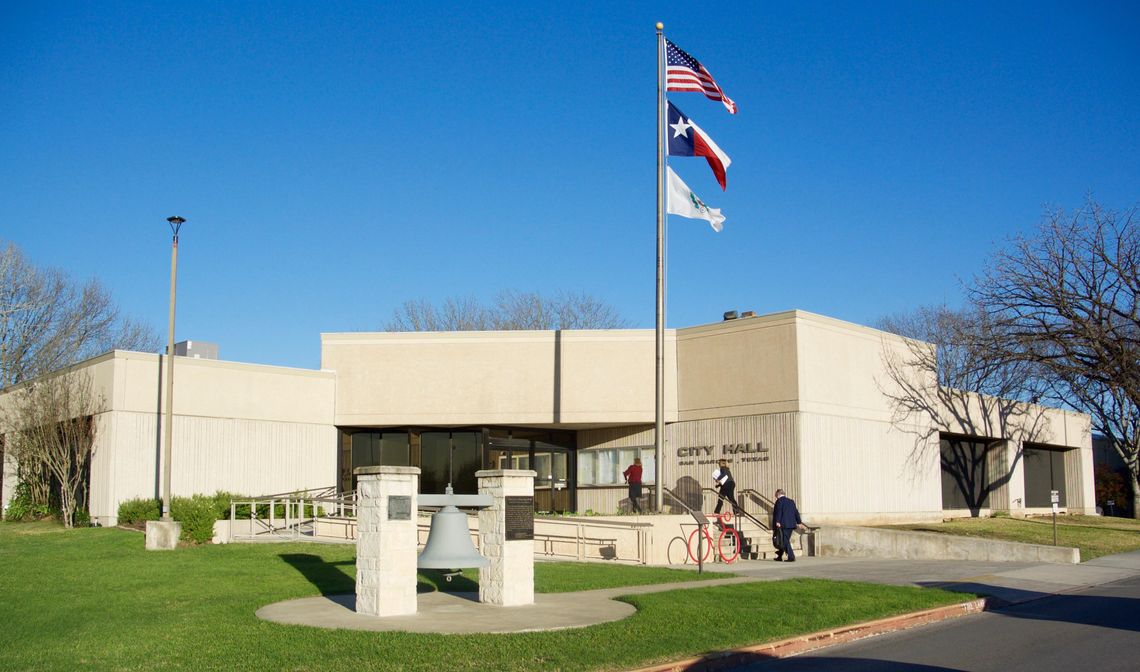The San Marcos City Council is exploring ways to make up $6.4 million in projected revenue shortfalls.
Due to historically high unemployment rates in San Marcos of 16.2%, closures of businesses and other economic impacts from the COVID-19 pandemic, the City of San Marcos is forced to prepare for a 20% reduction in revenues.
“We will do everything we can to maintain our core services and our employees, it will require us to work together to identify as many strategies to make it through the significant impact of virus,” City Manager Bert Lumbreras said in a budget work session Tuesday.
The city’s Assistant Director of Finance Melissa Neil presented staff recommendations for how to meet this revenue gap through tax rates, utility franchise fees, road maintenance fees, Downtown Tax Increment Reinvestment Zone and/or Economic Development Incentives. If they can’t close the $6.4 million gap by increasing revenue in some combination of these ways, the city will be forced to reduce expenditures on services and programs.
Council explored options for increasing property tax revenues somewhere between 3.5% and 8%. Texas Senate Bill 2 capped the no-new revenue rate at 3.5%, however because of the disaster status, the city can use a higher rate of 8%. Each year, council generally keeps the tax rate the same, which increases revenue because appraisal values increase.
The city council ultimately resolved to keep the same tax rate, which is a revenue increase of just under 8%. The difference between the two options of reducing the rate or keeping it the same for the homeowner is around $100 but a difference of $1.5 million for the general fund revenues.
As recommended, utility franchise fees can be expected to remain at 8%.
Staff recommended raising $1.4 million from Road Maintenance Fees, by charging homeowners $4 and commercial property owners $6. Council has some major concerns for this move, and more research may help them make a decision at the next budget work session.
Although they are expecting steep declines in sales tax revenues for the coming months, looking ahead two to three years, staff predicts sales tax revenue will rebound around 10% each year.
City staff also recommended reducing the fund balance to 20% instead of 25%.
Councilmember Ed Milhalkanin reluctantly supported the decision saying, “One of the reasons we had the fund balance as high as we did was for a rainy day. We knew someday there would be something we didn’t anticipate.”
The city generally contributes 70% of property tax increased value to Downtown TIRZ, and staff recommended just for Fiscal Year 2021 to reduce that contribution to 25%, which would bring in $1.3 million more to the general fund.
Staff also recommended amending the Fiscal Year 2020 budget to reduce Chapter 380 rebates by 50% which would result in an increase of $4 million in the general fund.
Council agreed to not only reduce Fiscal Year 2020 rebates by 50%, but also to reduce Fiscal Year 2021’s rebates by 75% with the intent to make up lost rebates to businesses should the economic outlook for the city turn around sooner.
The Hotel Occupancy Tax (HOT) revenue stream will also be impacted by the COVID-19 pandemic. Neil projects a 35% reduction from Fiscal Year 2019 HOT revenues.
Staff will return with recommendations related to HOT at the June 30 budget work session as well as suggestions for service level reductions to help make up the revenue gap.








